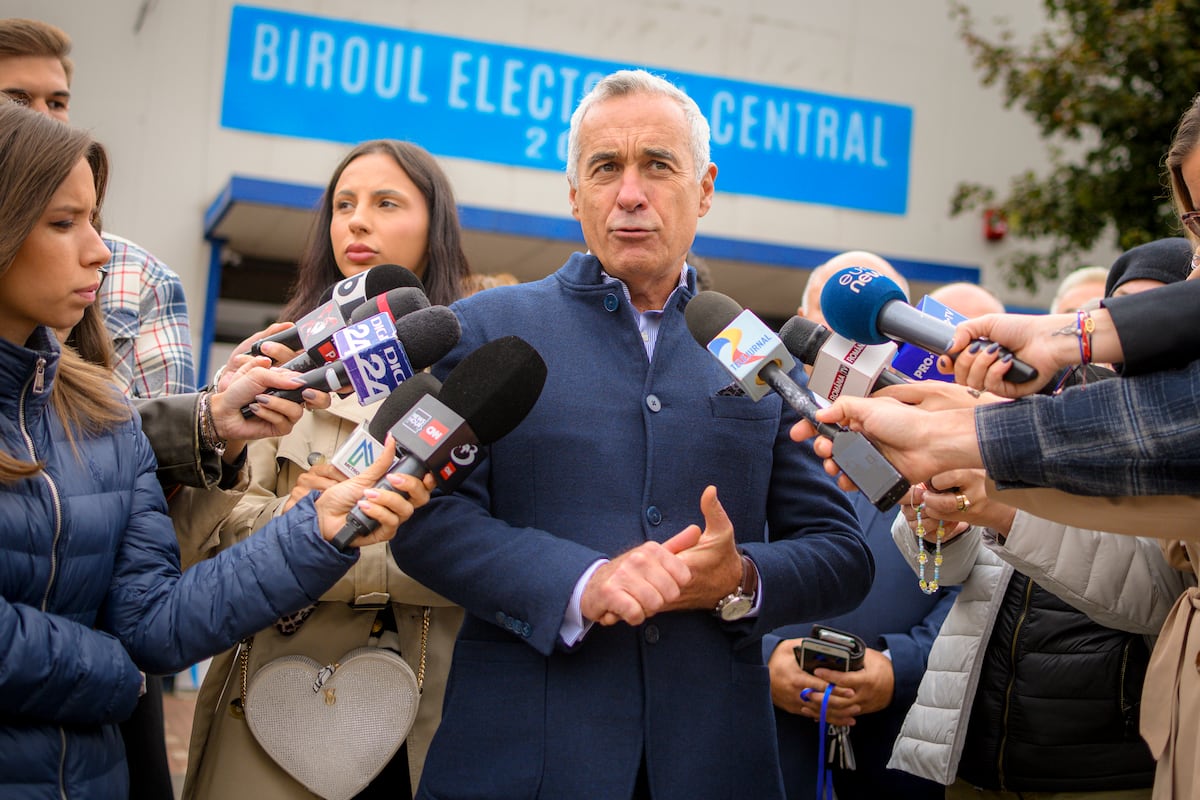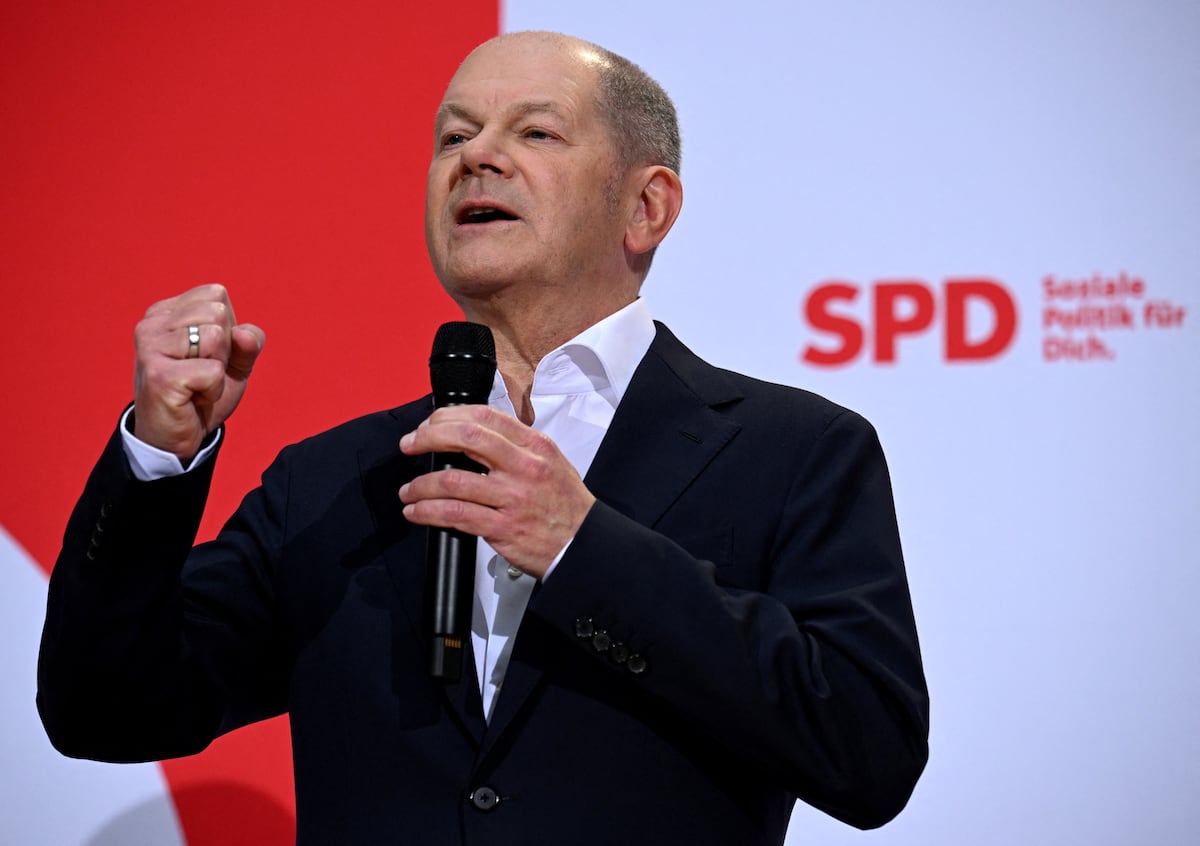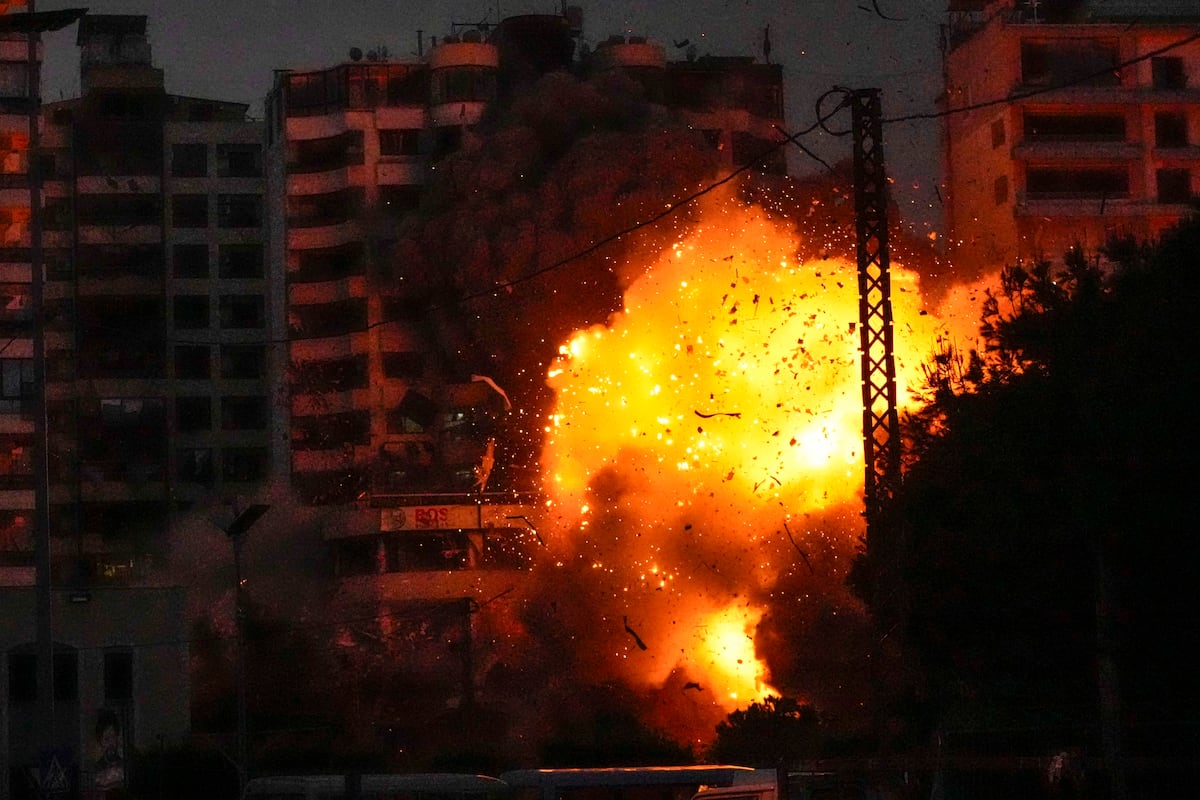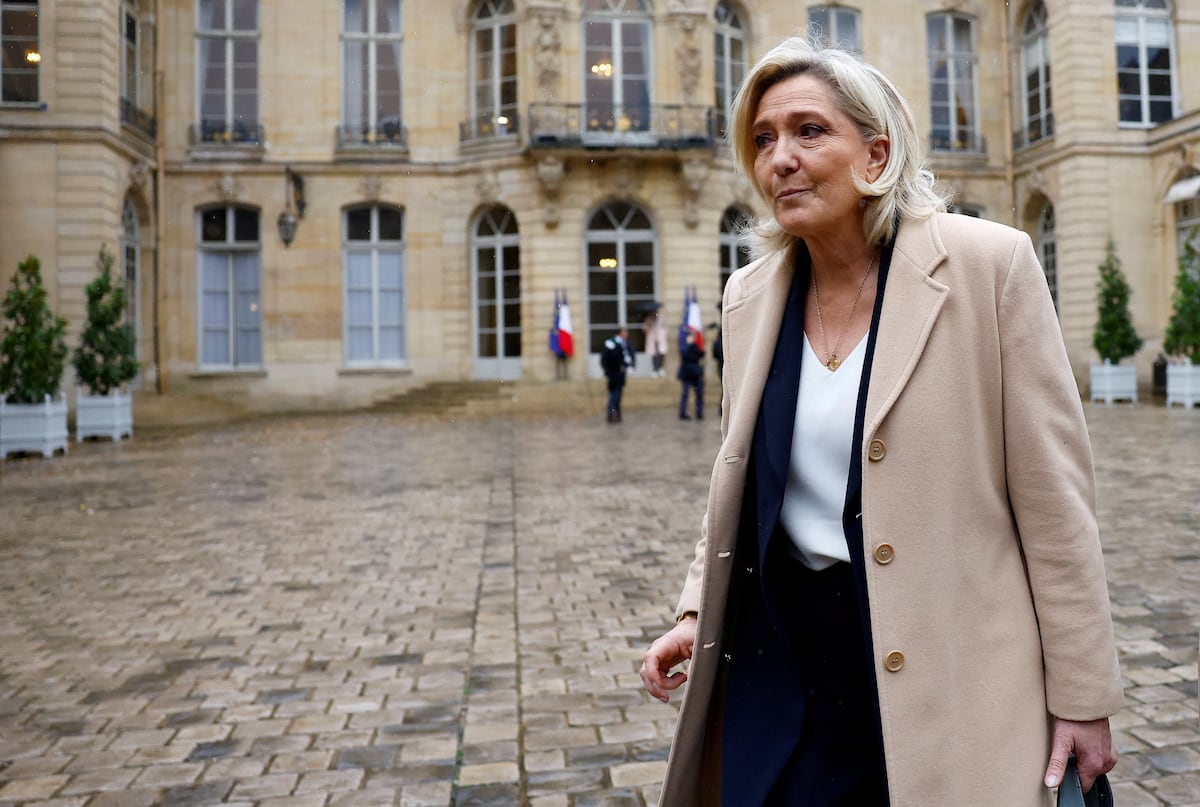After the surprise, a deep concern. And frustration. The unexpected victory of the pro-Russian and anti-EU candidate Calin Georgescu in Romania and his passage to the second round of the presidential elections has fallen like a bomb on the EU institutions that only a few days ago celebrated the imminent entry as a pro-European signal. full member of the Schengen area of this country. In Europe’s capital, the results of Sunday’s elections are being read as further proof—after Moldova and Georgia just a few weeks ago—that Russian propaganda is penetrating more and more places and more and more citizens, despite insistent warnings from Brussels to protect themselves from that interference.
Although no one wants to raise the alarm yet, at least publicly, because there are still the legislative elections in a week and the decisive presidential second round, what is not in doubt in the European bodies or in the diplomatic corridors is that there is a direct link between Russian disinformation campaigns and the rise of anti-Western candidacies in the EU and its neighbors.
“Russia currently represents the most significant threat to the information environment in the EU,” community sources underline.
All of this is also happening at one of the most delicate moments for Europe: 1,000 days have just passed since the beginning of the Russian invasion of Ukraine and when Moscow is not only seeking to involve more and more external actors in the war, but has also begun to use a new generation hypersonic missile. A situation that, in fact, will be discussed this Tuesday at NATO headquarters in Brussels at ambassadorial level.
The emergency meeting requested by kyiv will include, as a member for two decades, the same Romania that in a few weeks could end up led by a politician who “went so far as to congratulate Russia for the annexation of Crimea and considers that the war in Ukraine “It is due to the change in positioning of the Alliance from a defensive organization to a more aggressive one,” recalls Clara Volintiru, regional director of the Black Sea of the think tank German Marshall Fund (GMF).
A story, he emphasizes, “very aligned with that of the Kremlin” and that could also reach the very heart of the EU. Because if Georgescu wins the Romanian presidency—and several of his former rivals as anti-EU as he is have already promised to support him—the club of pro-Russian and Eurosceptic leaders who sit in the European Council would expand, after last victory spring in Slovakia by another pro-Russian, Peter Pellegrini. Something that would delight the Hungarian Prime Minister, Viktor Orbán, until not so long ago a pariah of the Twenty-Seven meetings and highly recriminated by them for his supposed “peace mission” that took him to Moscow at the beginning of the current presidency. of the EU, but which has grown with the latest electoral results, also those that have given victory in the United States to his friend Donald Trump. Also in the European Parliament, since the June elections, ultra voices have increased, many of which align themselves without complexes with the story of Moscow, accused in several countries, including Belgium, of having attracted and even paid politicians of the extreme right.
The scenario has been causing chills for many in Brussels and other European capitals for some time now.
Because what happened in Romania seems to strictly comply with the action manual of the Russian disinformation actors who, according to Brussels, act with a “tailored suit” in each country – using local language and context, often with local actors – which makes harder to fight them. “We have seen in the past that national elections are fertile ground for Russian interference and manipulation of information,” community sources point out. Although the work, very often, is long before the date of the elections: “It is a long-term process, which creates and spreads harmful narratives and manipulates public debate. All of this begins long before the elections and during them and after,” they point out.
Which is what, according to Volintiru, has happened in Romania, where, he laments, “the extent of Russian influence on Romanian public opinion has been seriously underestimated.”
“The elites in power have miscalculated their control over public sentiment,” he explains in a telephone conversation from Bucharest. He speaks of “complacency” when those responsible in power and traditional political forces believe that measures such as increasing pensions and salaries would be enough to attract the electorate. But when one in five Romanians are at risk of social and economic exclusion, one in five young people neither work nor study and one in five children leave school early, these messages are not enough. And pro-Russian actors have been able to take advantage of this “vulnerability” to play in favor of candidates aligned with Moscow. The more than two million Romanians who voted for Georgescu “do not share pro-Russian sentiment, but they do approve of traditional values, conservative narratives, and I believe that this is the way in which Russian interference occurs,” he points out. pointing out that they are phenomena already seen, previously, in Hungary, Serbia or Georgia.
The expert also points to a “serious error by the intelligence services that did not recognize the ongoing operation” of Russian disinformation. In particular, he points out, the activity on social networks of a part of the electorate, inside and outside the country, should have raised more alarms.
“By comparison, the Moldovan authorities were much more vigilant in identifying these types of Russian electoral mobilization efforts and, although they did not manage to counter the entire phenomenon, they were at least prepared to take some measures.”
From Europe now there is little more to wait and see, he adds. Because speaking out publicly against Georgescu could even be counterproductive, he warns. “It would only help further mobilize his anti-establishment base,” he considers.
Eric Maurice, analyst at the European Policy Center (EPC), calls for caution. He considers that the legislative elections of December 1 will serve as a barometer to see if this trend is confirmed or if the pro-European forces will be able to counteract it. Volintiru will also follow Sunday’s elections with calculator in hand. “We will have to see how many seats fall into anti-European and anti-establishment hands and see if they try to regroup and form a government coalition.” If they do not reach more than 30%, he believes, the pro-democratic and pro-European forces could still seek a coalition and maintain the government. But if the others reach 40%, not only the Romanian presidency could end up in the hands of an ally of Moscow. And there the alarms would begin to ring in the rest of the EU.







